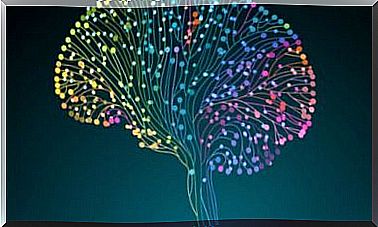What Is Egocentric Language?

We have all surprised someone speaking alone, we ourselves have been able to do this countless times. If there are real specialists in this practice, it is children. So, for example, many children under the age of 6 seem to have self-centered, spontaneous language that helps them grow taller.
This egocentric language is a very attractive phenomenon for developmental psychology. Although the language has a strong social character, it seems to hide something else. Its spontaneous use and insensitive to the presence of an interlocutor could be an indicator of the fact that it fulfills more functions than just social communication.
In this article, we will explore two different theories that attempt to explain the appearance and functions of egocentric language. These theories go hand in hand with two of the most relevant psychologists in the study of developmental psychology. These are Jean Piaget and Lev Vygotsky, who present us with two very different explanations of this phenomenon.
Piaget’s theory of egocentric language
To understand Piaget’s perspective of egocentric language, it is necessary to integrate it into his theory of development, which finds its foundation in the development of logical intelligence. Thus, the child’s ability to communicate with others will be conditioned by this type of development. Concretely, according to Piaget, the child will show a deficit in his social interactions until he develops the so-called “theory of mind”.
Egocentric language, according to Piaget, is a phenomenon centered on the sender himself, without concern for the perspective of the other. This would happen because the child does not yet have the capacity for social interaction. In addition, we also observe this type of egocentric behavior on other planes, such as thinking and perceiving.

Now, why does language without communicative utility appear? Piaget says that egocentric language appears as an expression of the symbolic function that the child has just acquired. Around 3 years old, the child begins to acquire the ability to represent his world through language, but has not fully understood the social function of the latter. This is the reason why we see a use of language based on oneself, given that would perform a non-communicative function.
Gradually, around 6-7 years old, the child gradually acquires the theory of mind. This will lead him to understand social interaction and the importance of language as an instrument of communication. In most cases, this would be sufficient stimulus for the child to abandon egocentric thinking and egocentric language, giving way to logical thinking and the development of the communicative aspects of language.
Vygotsky’s theory of egocentric language
Vygotsky presents us with a totally different explanation of egocentric language. He postulates that socio-cultural factors influence us from early childhood. He thus rejects Piaget’s hypothesis according to which the child, before the age of 6, is not interested in social interaction. The communicative attempts of babies would show us this interest in social life.
For Vygotsky, language is born with a social and communicative function. The child speaks to communicate with others and at the same time develops the symbolic function in the social context. Now, through the use of language, the child begins to discover another very important function, which concerns the capacity of language to self-regulate behavior: language helps us structure our thoughts and actions.

Egocentric language, according to Vygotsky, would be nothing more than a language that seeks to improve self-regulation. For this reason, it would appear without the need for an interlocutor. But then, why does the egocentric tongue disappear at the age of 6? It is here that a key process of Vygotsky’s theory appears, internalization.
At the age of 6, the child would already be able to internalize this egocentric discourse and make it part of his thinking. Thus, the function of self-regulation would be part of our internal discourse. This theory explains the genesis of language as the central support of our thought.
We have mentioned two very serious attempts to explain the reasons and the context in which egocentric language develops. The different hypotheses, framed in such different plans, have strengths and weaknesses, and depending on the perspective from which the language is studied, the data will be very different. This shows us that language is a complex process with many nuances and dimensions, which requires careful investigation in order to find answers to the questions it raises.










